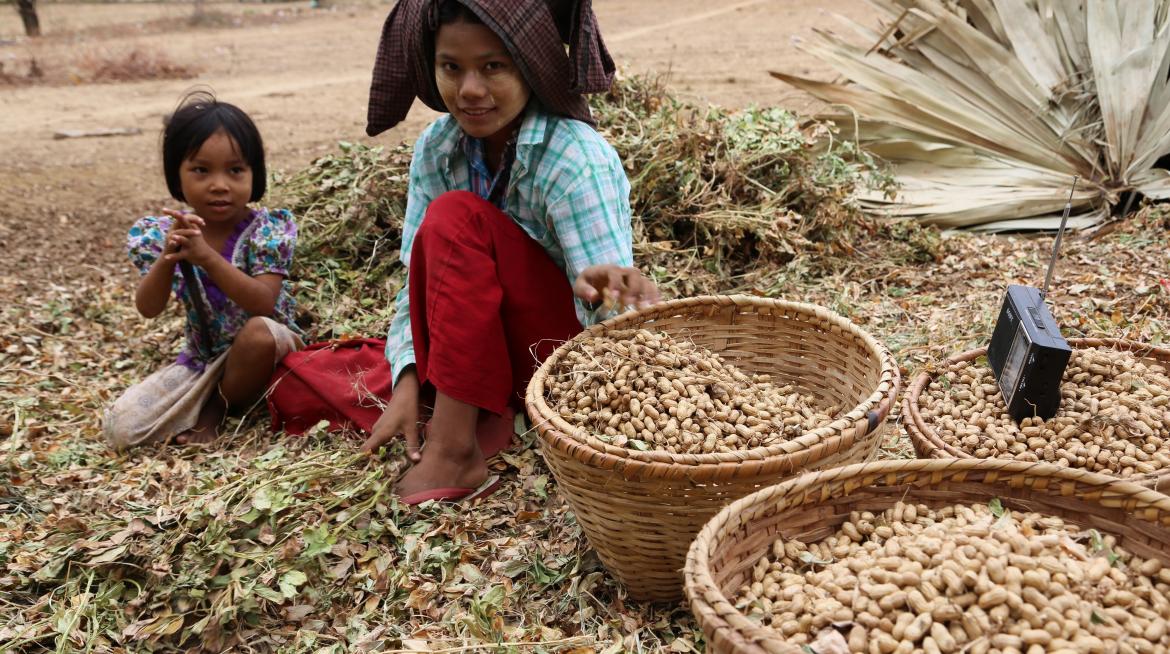
Original Article Available at :
Australia's foreign minister Kevin Rudd says he is planning to visit Burma in the coming months to encourage moves towards a fully-democratic Burma.
Mr Rudd travelled to Burma last year and met with pro-democracy leader Aung San Suu Kyi.
Presenter: Cheri Mangrai (Khin Mar Win)
Speaker: Kevin Rudd, Australia's foreign minister
RUDD: Well, the Australian government and through the Australian Department of Foreign Affairs we've been maintaining a long dialogue with Aung San Suu Kyi and we also observed developments in Burma, following the elections at the end of 2010 and the formation of the civilian government. We recognised there were many criticisms in the way in which that government was formed, but we formed a judgement, together with our consultations with Aung San Suu Kyi, that it was worth taking the risk of going in, talking directly to the government and to President Thein Sein as I did. We believe that that was the right thing to do, that the government of President Thein Sein was keen to make a change in policy direction, we reflected that to other countries around the world and we're pleased that so far, so far that change in policy direction seems to be continuing towards a more democratic Burma.
MANGRAI: And you've said that it's a historic opportunity and that you are ready to help every step of the way. What are your plans?
RUDD: Well, we believe it is a historic opportunity, because Burma for so long has been under one form of military rule or another. Therefore when the president of the country and the Burmese people reach out for international assistance to support them, we should respond. What of the practical steps, well first and foremost what Australia has done in recent years is increased our bilateral development assistance to Burma, we're currently Burma's second largest donor and we're looking towards doing more with the country in the coming year.
MANGRAI: Yes, in what sort of way?
RUDD: Well for example, one of the things that we are supporting is a program called LIFT, Livelihoods and Food Security Trust Fund Program. This is an important area in the country's dry zone and in areas in which we originally started funding after Cyclone Nargis. In fact, Aung San Suu Kyi visited yesterday these projects with our Ambassador to Burma, Bronte Moules. This is an important area of dealing with the one quarter of Burma which now has people, one quarter of the Burmese population still living below the poverty line. Another area, of course, is commercial engagement, encouraging Australian firms to become more active in Burma and I had discussions with the Burmese Industry Minister on that recently at the World Economic Forum.
MANGRAI: Have you got to visit Myanmar again in the near future?
RUDD: Yes, I'd like to visit Myanmar again in the period ahead. For example, in the months ahead, I will probably seek to go in again to look at the progress in our development assistance cooperation, look at what we can now do with Australian firms in Burma in order to boost economic activity within the country and on top of that, review progress, not just with Aung San Suu Kyi, but also with other leaders of the democratic parties. We're also looking most particularly at the outcome of the nationwide by-elections to be held on the 1st April, for 48 constituency seats in the Burmese parliament.
MANGRAI: So will the Australian government be reconsidering its stance on calling the country Burma and not Myanmar?
RUDD: We will continue to monitor that and try to conform with the appropriate national and international practice. As you know this is a hotly contested question. Our general practice is to refer to the country as Burma in the international debate and Myanmar when we are within the country with respect to the wishes of the government. But let us review international practice on this and we'll maintain an open mind.
MANGRAI: The Australian Ambassador, Bronte Moules, recently visited the Australian projects, together with Aung San Suu Kyi, but we have not been able to get access to her. Is there an effective media gag on the Australian diplomats in Myanmar?
RUDD: Of course not, that's something for Radio Australia to sort out with our Australian ambassadors. We have full confidence in our ambassador's ability to speak on these matters, but I'm glad to have the opportunity to speak on Radio Australia myself. Objectives, a democratic Burma, one which is fully engaged with ASEAN, fully engaged with the international community, one where we see economic development, the lifting of a quarter of its population out of poverty, that is still in poverty, and one which is fully engaged with the economies of the region.
MANGRAI: One last question Mr. Rudd. How would China think about the latest Burma's move towards democracy, would Burma turn into a battle ground between the West and China?
RUDD: Well, China's historical position on these questions is that they respect the internal sovereignty of other countries, nay the policy of mutual monitor interference. Therefore if the Burmese people through their government under President Thein Sein democratised the matter in which is now being considered, then I'm confident China will respect the decision of its neighbours to do so. It has other neighbours, like Mongolia, it has other neighbours like the Republic of Korea and in Kazakhstan and elsewhere where democracies flourish and I don't think this would present a problem for China as well.


